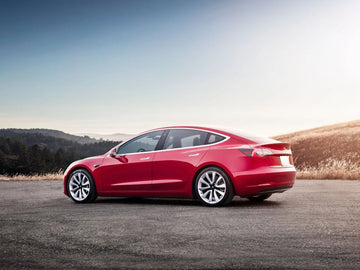Tesla, the trailblazing electric vehicle giant, recently made waves in the tech industry by parting ways with Wiferion, the German-based wireless charging startup they had acquired just earlier this year. While the decision to sell off Wiferion might have raised a few eyebrows, the strategic brilliance behind Tesla's move lies in their decision to retain all of Wiferion's engineers.
This intriguing development appears to be a well-thought-out play in Tesla's ongoing strategy to attract and retain the brightest engineering minds in the business. The move aligns perfectly with what insiders call "acqui-hiring," a tactic employed by tech behemoths to swiftly onboard top talent by acquiring companies primarily for their human capital rather than their products or services.
By keeping Wiferion's talent pool intact, Tesla has significantly strengthened its arsenal with experts in the realm of wireless charging. This move is a clear indication that Tesla is still heavily invested in the wireless charging game, aiming to revolutionize the way electric vehicles are charged in the future.
Wiferion, a company founded in 2016, had made significant strides in the industry with its groundbreaking inductive charging systems tailored specifically for industrial applications. Their technology was not merely about the product but about the brilliant minds behind it. Tesla's acquisition of Wiferion was initially seen as a strategic move to enhance its charging capabilities. Wiferion's technology promised nearly instantaneous charging transitions, delivering an impressive 12 kilowatts of power. Having already sold over 8,000 charging stations to industrial customers, Wiferion had firmly established its presence in the market.
This acquisition, when viewed alongside a seemingly innocuous slide presented by Rebecca Tinucci, Tesla's Senior Director of Charging Infrastructure, during a Tesla Investor Day presentation earlier in the year, hints at Tesla's ambitious plans for wireless charging. The slide depicted a future where wireless charging would play a pivotal role. With Wiferion's acquisition, Tesla's vision for wireless charging becomes unequivocally clear.
What sets Tesla apart in this strategic move is the integration potential of the talent acquired from Wiferion. Tesla's diverse portfolio, including groundbreaking projects like Optimus, extends the applications of wireless charging far beyond just vehicles. The expertise brought in from Wiferion could seamlessly integrate into various facets of Tesla's innovation pipeline. One can't help but wonder: was this Tesla's grand plan all along? A calculated move to swiftly integrate top-tier talent into its vision for the future of electric vehicle charging?
The answer becomes evident when you delve into the pages of Elon Musk's biographies. Tesla's decision to retain Wiferion's engineers speaks volumes about their commitment to staying at the forefront of innovation, ensuring that they have the best and brightest minds driving their mission to revolutionize the future of electric mobility. As the dust settles, it's clear that Tesla's genius lies not just in their electric vehicles, but also in their strategic maneuvers that pave the way for a future where wireless charging is not just a luxury but a fundamental part of the electric vehicle experience.
Tesery, dedicated to providing quality products and services to Tesla owners. The most trusted Tesla accessories shop and supplier, the choice of over 28,000 Tesla owners!














































